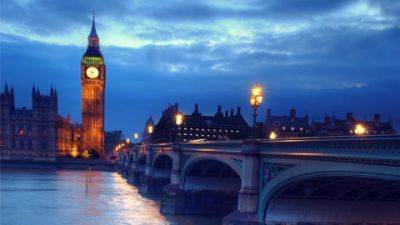Barclays CEO says difference in Labour and Conservative economic policy is 'fairly minimal'
Political risk in the U.K. is «far less than it's ever been» as the difference between the ruling Conservative Party and main opposition Labour on economic policy is «fairly minimal,» Barclays CEO C.S. Venkatakrishnan said Thursday.
The U.K. is set to hold a General Election later this year, and the latest polling consistently suggests a landslide Labour victory, bringing an end to fourteen years of Conservative rule.
Since current Labour leader Keir Starmer took the reins in April 2020, the party has transformed itself from the hard-left offering that suffered a crushing election defeat in 2019 to a centrist, pro-business alternative to Prime Minister Rishi Sunak's Conservatives.
Labour's Shadow Finance Minister Rachel Reeves has been at the World Economic Forum in Davos, Switzerland this week, making the party's case for overseas business investment into the U.K.
She told CNBC Wednesday that the party's focus was on powering improvement in living standards through economic growth, not raising taxes on business or high earners.
«I think the political risk in the U.K. is far less than it's ever been,» Venkatakrishnan told CNBC at WEF.
«This election, whenever it comes, is not Margaret Thatcher with James Callaghan. The difference in economic policies between the two, and they're both striving to say so, are fairly minimal,» he said, referencing two former British leaders.
Labour's «five point plan for growth» includes a new fiscal lock to restore economic stability, mass reforms to planning laws to build 1.5 million new homes, and a new industrial strategy to generate investment in the life sciences, digital, creative, financial, clean power and automotive industries.
Despite the U.K.'s well-documented economic
Read more on cnbc.com
 cnbc.com
cnbc.com




















